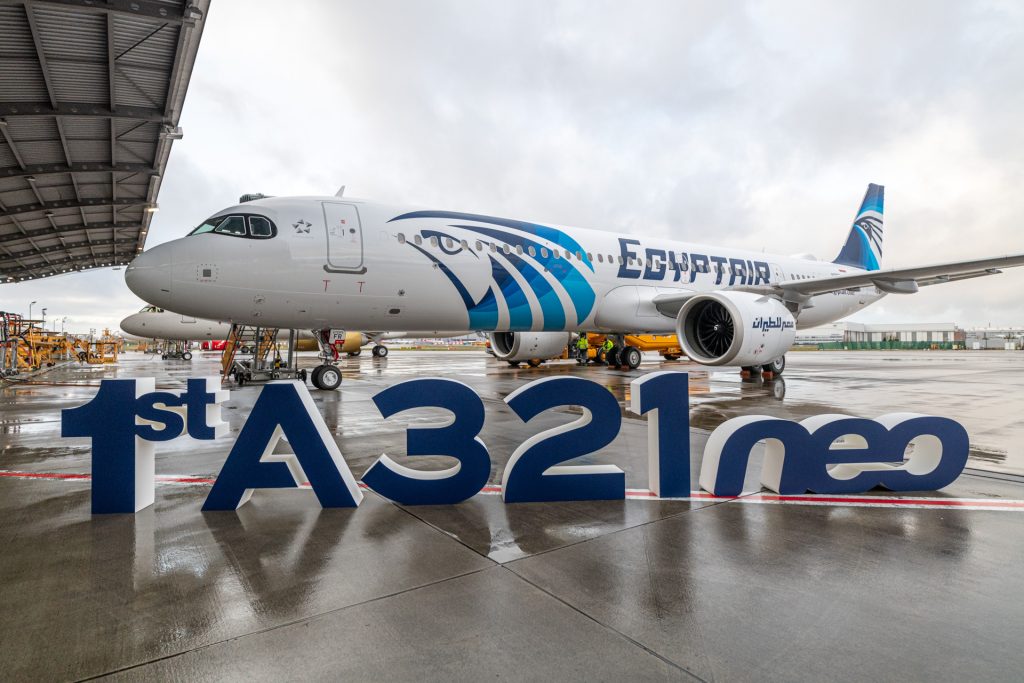EGYPTAIR took delivery of its first A321neo from Airbus’ Delivery Centre in Hamburg, making the airline the first African aircraft operator.
EGYPTAIR has specified a high comfort, two-class configuration with 16 Business class seats and 166 Economy class seats and will increase the airline’s single-aisle capacity to the Middle East, Africa and Europe. The aircraft is on lease from AerCap and is powered by CFM engines.
The A321neo is the largest-fuselage member of Airbus’ best-selling single-aisle A320 Family and brings a 20 per cent reduction in fuel consumption and emissions per seat compared with previous generation competing aircraft. This enables EGYPTAIR to benefit from enhanced efficiency and deliver on its commitment to sustainability whilst reducing operating costs.
This modern aircraft joins EGYPTAIR’s Airbus fleet of 12 A220s, 8 A320neos, 2 A320ceos, 4 A330-200, and 4 A330-300. With the addition of the A321neo, EGYPTAIR is demonstrating continuous ambitions to expand its Airbus fleet to meet current and future demand.
Across all its aircraft families, Airbus’ unique approach ensures that aircraft share the highest commonality in airframes, onboard systems, cockpits, and handling characteristics. This significantly reduces operating costs and maximises the airline’s profitability.
A 34 per cent Sustainable Aviation Fuel (SAF) blend powered the delivery flight from Hamburg to Cairo. SAF is a sustainably-produced aviation fuel from feedstocks ranging from used fat, oil, and grease to municipal and forestry waste. Compared to fossil jet fuel, SAF has been demonstrated to result in an up to 80 per cent reduction in CO2 emissions across the entire SAF lifecycle. Therefore, it is considered a key enabler contributing to the decarbonisation of aviation.
Currently, all Airbus commercial aircraft can fly with an up to 50 per cent SAF blend mixed with kerosene and are targeted to be competent for 100 per cent SAF use in flight by the end of this decade. Since March 2021, Airbus has accomplished 100 per cent of SAF test flights on A319neo, A350 and A380 aircraft.




